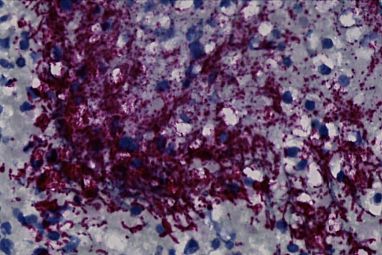Exploring the Link between Gum Disease and Colorectal Cancer
Recent studies have shown a potential link between gum disease and an increased risk of colorectal cancer, particularly in young adults. This connection is alarming, as gum disease is a common oral health issue that can lead to tooth loss and other complications if left untreated. The presence of Fusobacterium nucleatum, a bacteria associated with gum disease, has been found in colorectal cancer tissues, suggesting a correlation between the two diseases. Screening techniques for colorectal cancer may benefit from including assessments for periodontal disease and inflammation caused by Fusobacterium nucleatum. Genetic comparison of subspecies Fna. in colorectal cancer patients suggests a correlation with tooth loss and advanced gum disease, further emphasizing the importance of oral health in cancer prevention.
How Young Adults Can Benefit from Early Cancer Screening
Early cancer screening can help young adults detect colorectal cancer, which has been linked to the presence of Fusobacterium nucleatum, a bacteria associated with gum disease. Screening techniques for young adults can identify inflammation and periodontal disease, which are risk factors for tooth loss and may increase the likelihood of developing cancer. Genetic comparison studies have shown that subspecies Fna., commonly found in gum disease, may contribute to the development of colorectal cancer in young adults. By incorporating assessments for gum disease into cancer screening protocols, healthcare providers can potentially catch cancer early and improve patient outcomes.
The Significance of Tooth Loss as a Potential Cancer Indicator
Tooth loss can be an early indicator of colorectal cancer, particularly in young adults who may not be undergoing regular screening techniques. The presence of Fusobacterium nucleatum, a bacteria associated with gum disease, has been linked to inflammation and the development of periodontal disease, which can increase the risk of cancer. Genetic comparison studies have identified subspecies Fna. of Fusobacterium nucleatum in colorectal cancer tissues, suggesting a potential connection between tooth loss and cancer development. This highlights the importance of maintaining good oral health and seeking treatment for gum disease promptly.
Investigating the Relationship between Gum Disease and Inflammation
Recent studies have shown a correlation between gum disease and increased inflammation, which may contribute to the development of colorectal cancer in young adults. Advancements in screening techniques have allowed for the detection of Fusobacterium nucleatum, a subspecies Fna., in the oral cavity, linking periodontal disease to cancer. Genetic comparison studies suggest that individuals with gum disease and tooth loss have a higher risk of cancer due to the presence of inflammation-causing bacteria. This underscores the importance of addressing gum disease and reducing inflammation to lower the risk of colorectal cancer.
The Importance of Genetic Analysis in Understanding Cancer Risk
Research shows a link between gum disease caused by Fusobacterium nucleatum and an increased risk of colorectal cancer in young adults. Genetic comparison of subspecies Fna. in periodontal disease can help identify individuals at higher risk for cancer, leading to improved screening techniques. Inflammation from gum disease, tooth loss, and periodontal disease may contribute to cancer development, highlighting the importance of genetic analysis in understanding cancer risk. By analyzing the genetic makeup of bacteria associated with gum disease, healthcare providers can better assess a patient’s risk for colorectal cancer and take preventative measures to protect their health.
Resources
- Gum disease-related bacteria tied to colorectal cancer NIH RESEARCH MATTERS April 2, 2024



